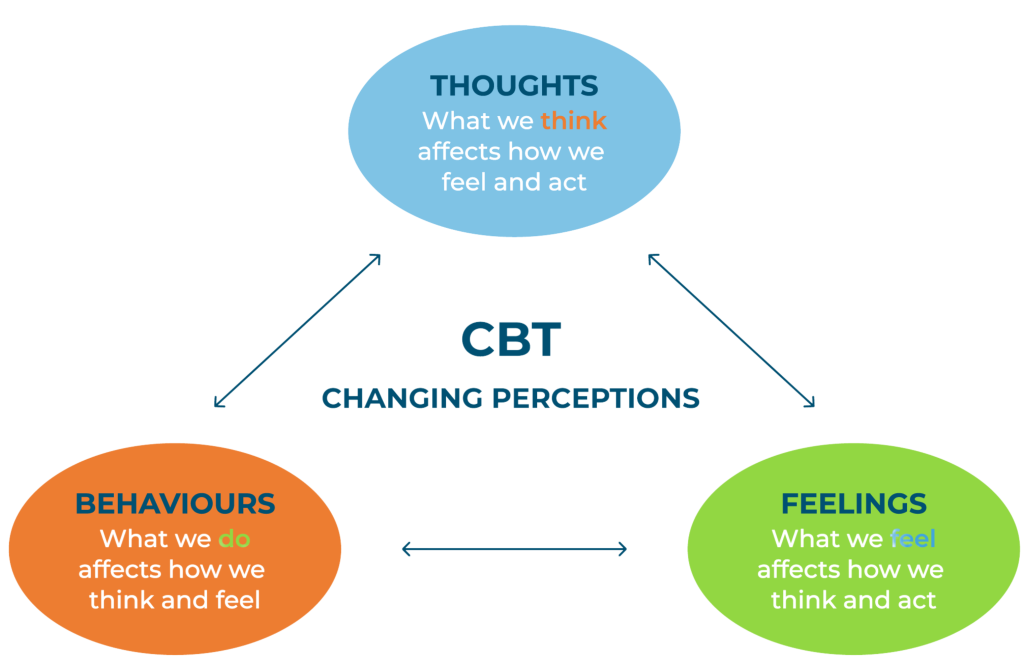The Connection Between Stress and Infertility: Effective Ways to Manage Stress for Better Fertility
Infertility is a growing concern for millions of couples worldwide, with various medical conditions like polycystic ovary syndrome (PCOS), hormonal imbalances and low sperm count often being blamed. However, one crucial factor that is frequently overlooked is stress. Studies have shown that chronic stress can significantly impact reproductive health by disrupting hormone levels, reducing libido and leading to irregular ovulation or low sperm quality.
This article delves into the connection between stress and infertility, presenting scientifically backed insights and expert-recommended stress management techniques to enhance fertility and improve your chances of conception.

Understanding the Link Between Stress and Infertility
Chronic stress negatively impacts reproductive health by causing hormonal imbalances that disrupt ovulation and sperm quality. The release of cortisol and adrenaline interferes with fertility, while stress-related poor diet, lack of sleep and reduced sexual activity further worsen the issue. Couples facing infertility often experience emotional distress, creating a cycle where stress aggravates fertility problems. Research highlights that stress-reduction techniques can improve fertility outcomes, emphasizing the importance of a holistic approach to reproductive health.
How Stress Affects Hormones and Reproductive Function
Chronic stress activates the body’s stress response system, leading to an overproduction of cortisol and adrenaline. These hormones can interfere with reproductive function by suppressing the release of essential fertility hormones, including:
- Gonadotropin-releasing hormone (GnRH): Regulates ovulation and sperm production.
- Luteinizing hormone (LH) & Follicle-stimulating hormone (FSH): Responsible for ovarian follicle development, ovulation and sperm production.
- Progesterone & Estrogen: Essential for preparing the uterine lining for implantation and maintaining pregnancy.
Studies have confirmed the negative impact of stress on fertility. A 2021 study in Fertility and Sterility found that women with high stress biomarkers had a 29% lower conception rate than those with lower stress levels. Similarly, research published in Human Reproduction indicated that chronic stress in men led to lower sperm count, poor sperm motility and increased sperm DNA fragmentation.
According to a report from the American Psychological Association (APA), chronic stress can trigger hormonal imbalances that disrupt ovulation and sperm production, ultimately leading to fertility issues
Stress and Its Impact on Ovulation
Stress disrupts the hypothalamic-pituitary-ovarian (HPO) axis, leading to irregular ovulation or anovulation. Research from the American Society for Reproductive Medicine (ASRM) links high stress levels to ovulatory dysfunction, lowering conception chances.
Stress may also worsen Polycystic Ovary Syndrome (PCOS) by increasing androgen and cortisol levels, further affecting menstrual cycles. A Journal of Psychoneuroendocrinology study found that women with PCOS had heightened cortisol responses, exacerbating fertility struggles.
According to the National Institutes of Health (NIH), stress management techniques like meditation and yoga help restore hormonal balance and ovulatory function.
Stress-Induced Sexual Dysfunction
Stress is a significant contributor to reduced libido and sexual dysfunction in both men and women. Chronic stress diverts the body’s energy away from reproductive functions, leading to:
- Reduced sexual desire due to suppressed testosterone and estrogen levels.
- Erectile dysfunction (ED) in men due to increased sympathetic nervous system activity.
- Vaginal dryness and painful intercourse in women due to low estrogen levels.
A survey by the National Institute of Child Health and Human Development (NICHD) found that couples experiencing high stress were 40% less likely to engage in regular intercourse, further lowering their chances of conception. In men, stress has been linked to decreased sperm motility and morphology, as confirmed by research in the Andrology Journal.
Cognitive Behavioral Therapy (CBT) and relationship counseling can be effective ways to address stress-related sexual dysfunction. Additionally, exercise, relaxation techniques, and acupuncture have been shown to improve sexual health and enhance fertility outcomes.
The Psychological Impact of Infertility-Related Stress
Struggling with infertility can be emotionally overwhelming, leading to anxiety, depression and frustration. Many couples experience guilt, inadequacy and strain on their relationships. Societal and cultural expectations further intensify this distress.
Increased Anxiety and Depression
Research in Human Reproduction found that 50% of women and 15% of men facing infertility report anxiety and depression. Repeated failed attempts at conception and medical interventions contribute to chronic stress, disrupting hormonal balance and reproductive function.
Impact on Relationships
Infertility stress can strain relationships, causing conflicts, emotional distancing and decreased intimacy. Open communication and emotional support improve coping mechanisms and relationship stability.
Social and Cultural Pressure
In many cultures, fertility is linked to identity. Couples may face societal pressure, leading to shame and distress. Seeking psychological support and stress management strategies is essential.
Breaking the Cycle of Stress and Infertility
Counseling, mindfulness and support groups can improve mental well-being and fertility. The Journal of Psychosomatic Research suggests that women using stress-reduction therapies, like cognitive behavioral therapy (CBT) or meditation, have higher conception rates.
Scientific Studies and Statistical Data on Stress and Infertility
- Study by Harvard Medical School (2018): Women who participated in a stress-reduction program experienced a 55% increase in pregnancy rates compared to those who did not.
- World Health Organization (WHO) Data: Approximately 186 million individuals globally struggle with infertility and psychological stress is a contributing factor in at least 30% of cases.
- Survey by the American Psychological Association (APA): 47% of women experiencing infertility report high levels of stress, anxiety and depression, impacting their overall reproductive health.
Effective Ways to Manage Stress for Better Fertility
Mind-Body Therapies: Yoga & Meditation
Practicing yoga and meditation has been shown to lower cortisol levels and improve fertility outcomes. A study published in the Journal of Obstetrics and Gynaecology Research found that women who practiced yoga for 12 weeks had a 20% increase in conception rates.

Cognitive Behavioral Therapy (CBT)
CBT is an evidence-based approach that helps manage stress by changing negative thought patterns. A 2022 meta-analysis found that couples undergoing CBT had a 33% improvement in pregnancy rates compared to those without therapy.

Healthy Diet & Nutrition
Nutritional deficiencies caused by stress can impact fertility. A diet rich in antioxidants, omega-3 fatty acids and folic acid can counteract the negative effects of stress. The Mediterranean diet, which includes high consumption of fruits, vegetables and healthy fats, has been linked to improved fertility in a study by the European Journal of Clinical Nutrition.
Regular Physical Activity
Moderate exercise, such as walking or swimming, helps reduce stress hormones and improve reproductive health. A study published in Sports Medicine found that women engaging in moderate exercise had a 42% higher chance of conception.

Acupuncture for Stress and Fertility
Acupuncture has been used for centuries to regulate stress and improve reproductive health. A 2019 clinical trial found that women undergoing acupuncture during IVF treatment had a 26% higher success rate.
Adequate Sleep and Relaxation
Sleep plays a critical role in hormone regulation. Research from the National Sleep Foundation found that individuals who slept less than 6 hours per night had a 30% increased risk of infertility.

Support Groups and Counseling
Emotional support from counseling or fertility support groups can significantly reduce stress levels. A study by Psychosomatic Medicine found that women who received emotional support had a 40% increase in pregnancy rates.
Frequently Asked Questions (FAQs)
1. Can stress alone cause infertility?
Stress alone may not cause infertility, but it can disrupt hormone levels, ovulation and sperm quality, making conception harder.
2. How does stress affect ovulation?
Chronic stress increases cortisol, disrupting ovulation and sometimes leading to anovulation (lack of ovulation).
3. Does stress impact male fertility?
Yes, it reduces sperm count, motility and quality, increasing sperm DNA fragmentation.
4. What are the best ways to reduce stress for fertility?
Yoga, meditation, exercise, CBT, a healthy diet, good sleep and acupuncture help manage stress and improve fertility.
5. Can stress lower IVF success rates?
Yes, but stress-reducing techniques like relaxation therapy and acupuncture can improve IVF outcomes.
6. How long does stress reduction take to improve fertility?
It varies, but practicing relaxation techniques for 8–12 weeks can show improvements.
7. Does yoga and meditation enhance fertility?
Yes, studies show yoga and meditation lower stress hormones and improve conception rates.
8. Does sleep affect fertility?
Yes, sleeping less than six hours per night can increase infertility risk by 30%.
9. How does diet help manage stress-related infertility?
A Mediterranean diet rich in antioxidants, omega-3s and folic acid supports hormonal balance and fertility.
10. Should I seek professional help for stress-related infertility?
Yes, consulting a fertility specialist or therapist can improve both mental well-being and fertility outcomes.
Conclusion
While medical advancements continue to improve infertility treatments, managing stress should not be overlooked as a key factor in reproductive health. Lakshmi Fertility Centre in Karaikudi specializes in holistic fertility care, combining advanced treatments with stress-reduction techniques to enhance your chances of conception.
If you or your loved one are facing fertility challenges, schedule a consultation with our experts at Lakshmi Fertility Centre.
